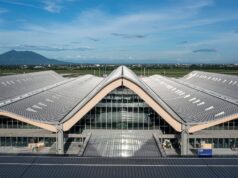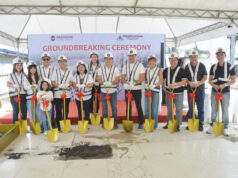CITY OF SAN FERNANDO, Pampanga (PIA) — Department of Science and Technology (DOST) is continuously working on various research and development (R&D) initiatives to boost Central Luzon’s development.
DOST Regional Director Julius Caesar Sicat said they are proud of the different capabilities that have been developed that helps provide unique products and services to the people, especially to local and foreign tourists.
“In Aurora, we are developing typhoon resilient agriculture in partnership with Aurora State College of Technology and municipal government of San Luis. The province is frequented by typhoons which damage crops so our farmers are having difficulty to provide the demands of the people. Through this, we want to provide high value salad vegetables like lettuce, as well as fruits like strawberries to our tourists,” he said.
In Bataan, DOST brought industry 4.0 technologies by developing the capacity for 3D printing and additive manufacturing, which can be used by locators of the Freeport Area of Bataan.
In Bulacan, DOST partnered with the municipal government of Guiguinto in establishing iLab to propagate plants that will actually sell in the market using a unique method.
“For Nueva Ecija, our focus is research on onion and the African Swine Fever. While for Pampanga, we provide modern technology, technical assistance, and support system to the furniture industry so they can better compete in the market in terms of mass production of specialized furniture designs,” Sicat furthered.
DOST launched in Tarlac the Project Municipal Innovation thru Science and Technology (MIST) with the provincial government and other partners, including the Philippine Information Agency.
“Mostly, our focus there is helping nutraceuticals company manufacturing supplements and private labs improve their capability for accreditation to international standards. We are eyeing to extend project MIST to all provinces of Central Luzon, and the Philippines so that we can take advantage of the local government’s very active partnership with the academic community and various government agencies,” he said.
For Zambales, DOST is focused on the satellite-based mariculture technology anchored on the blue economy.
Pictures sent by satellites can be used to study the Philippine coastline and see the areas where to propagate good commodities like grouper, sea cucumber, and other marine products.
“Towards the launch of DOST’s Vision 2050 where we have already shown the direction of the Philippines’ R&D towards seeing it as an archipelagic maritime nation. For the longest time, our focus is on land, but about 80 percent of the Philippine territory is composed of water. There is now need to focus on our waters because there is the potential or the niche of the Philippines that we have not paid attention to for a long time,” he said.
DOST is also making efforts on training Central Luzon Food Safety Team on Halal certification and audit so that entrepreneurs can market their products to Muslim countries.
He assured that the agency is doing their best to come up with unique programs that can ensure a prosperous economy for Central Luzon, and improve the country’s innovation competitiveness ranking.





